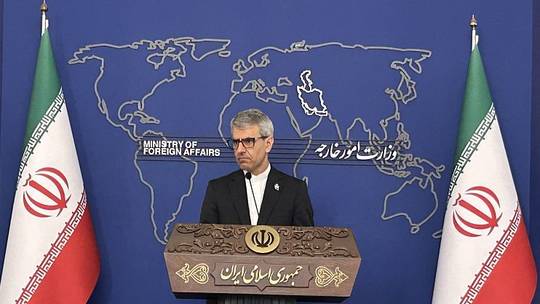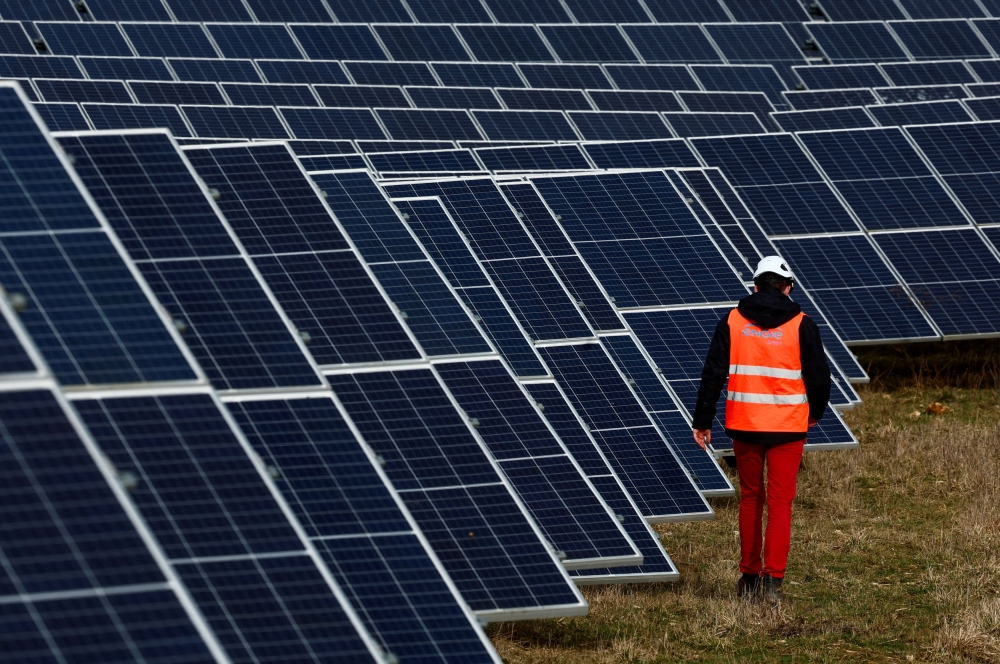All the evidence that China is a threat to national security
PM blames Conservatives for failing to define Beijing as threat at time alleged spying offences were committed

On the day Christopher Cash and Christopher Berry were arrested on suspicion of spying for China, the Conservative government issued an update on its policy towards Beijing.
The Chinese Communist Party, it said in 2023, posed “a threat to our people, prosperity and security”.
Little wonder, then, that the Crown Prosecution Service believed passing secrets to the Chinese was – by definition – espionage.
In April last year, Mr Cash, a former parliamentary aide, and his friend Mr Berry, a teacher, were charged with collecting information that could be “directly or indirectly useful to an enemy”. They both deny all charges and claims.
The CPS believed it had a strong case against the two men. So why, after the case was unexpectedly dropped, is the CPS now blaming the Governmentfor failing to provide it with evidence that China is a threat to national security?
And why is Sir Keir Starmer blaming the Conservatives for failing to define China as a threat at the time the alleged offences were committed?
There are so many examples of the Government describing China as a threat during the relevant period that many MPs believe the real reason the spying trial collapsed is that the Labour Government deliberately pulled the plug on it.
Sir Keir is due to visit Beijing next year, and a high-profile spying case would be unhelpful to his efforts to secure Chinese investment in the ailing UK economy.
In a letter to the chairmen of Parliament’s home affairs and justice committees earlier this week, Stephen Parkinson, the director of public prosecutions, gave his own explanation of what had happened.
He said that under case law – as established in a 2024 High Court ruling concerning a Russian spy ring – an enemy of the state was defined as “a country which represents, at the time of the offence, a threat to the national security of the UK”.
Mr Parkinson went on to explain that, in the case of Mr Cash and Mr Berry, “none of [the witness statements] provided [to the CPS] stated that at the time of the offence China represented a threat to national security”.
Former Whitehall aides have described this as “baffling” because – as Lord Case, the former cabinet secretary – has pointed out, evidence of China’s status as a threat was abundant during the period of the alleged offences between December 2021 and February 2023.
The implication is that the CPS did not need a dossier from the Government, and the previous Tory government did not need to make a public declaration of China’s enemy status, for a trial to proceed.
In October 2023, Sir Ken McCallum, the head of MI5, said that around 20,000 Britons had been approached on the networking site LinkedIn by Chinese state actors hoping to steal industrial secrets.
Sir Ken estimated that 10,000 UK businesses were at risk from Chinese industrial espionage, with artificial intelligence, quantum computing and synthetic biology firms among the top targets for Beijing’s spies.
This was on top of China’s massive spying operation on the Government, the Armed Forces and defence firms, he said, with more than 2,000 ongoing MI5 investigations into Chinese activity. He said the Security Service was opening a new case file on Chinese spying “roughly every 12 hours”.
In 2022, Sir Ken disclosed that 50 Chinese students linked to the People’s Liberation Army had left the UK in the previous three years thanks to a clampdown on suspected Chinese spying operations.
Then there are the relentless cyber attacks on UK firms. In March last year, while Rishi Sunak was prime minister, the government directly accused Chinese state-affiliated organisations of launching cyber attacks on “democratic institutions and parliamentarians”.
The National Cyber Security Centre, part of GCHQ, concluded that the Chinese state was behind an attack on the Electoral Commission, the watchdog for all UK elections.
The centre also said China’s Advanced Persistent Threat Group 31conducted reconnaissance activity against MPs in 2021, targeting MPs who had publicly called out China’s malign activity.
The government said at the time that “this is the latest in a clear pattern of malicious cyber activity by Chinese state-affiliated organisations and individuals”, targeting British democracy.
The Chinese ambassador was summoned to the Foreign Office at the time and sanctions were imposed on a front company called Wuhan Xiaoruizhi Science and Technology Company Ltd.
Former Whitehall officials have told The Telegraph that a “big shift towards China as a threat” came in March 2021 when Boris Johnson’s government published its Integrated Review of security, defence, development and foreign policy.
Authored by Prof John Bew, a No 10 adviser, it said: “We will do more to adapt to China’s growing impact on many aspects of our lives… improving our ability to respond to the systemic challenge that China poses to our security, prosperity and values.”
It was in a refresh of this report, published on March 13 2023, that the Government updated its policy towards Beijing.
It said: “We will update the UK’s approach to China to keep pace with the evolving and epoch-defining challenge it poses to the international order. We will increase our national security protections in those areas where Chinese Communist Party actions pose a threat to our people, prosperity and security.”
Coincidentally, Mr Cash and Mr Berry were arrested on the same day that the refresh was published.
In July 2023, Parliament’s intelligence and security committee (ISC) reported that China had adopted a “whole of state” approach to targeting the UK through its intelligence agencies, Britain’s reliance on Chinese products and technology, and by buying up British assets.
One such example came in 2021 when the Conservative government intervened in the sale of a Welsh semiconductor factory to a Chinese-owned firm because of concerns over national security.
Newport Wafer Fab had been bought by Chinese-owned Nexperia, whose parent company was partly owned by the Chinese Government. After an investigation under the National Security and Investment Act, Nexperia was forced to divest most of its shares.
It came after the government had banned the use of equipment manufactured by the Chinese firm Huawei from the UK’s 5G mobile phone network over fears that it could pose a security risk by being used as a back door to access sensitive information.
In 2023, Yang Tengbo, known as Chris Yang, was barred from the UK by the Home Office following accusations that he was using his relationship with Prince Andrew to spy on the UK. The businessman had carried out “covert and deceptive activity” on behalf of the Chinese Communist Party, the Home Office said.

In June 2023, it emerged that China was running unofficial “police stations”in the UK to monitor dispersed communities and coerce people to return.
Tom Tugendhat, the then security minister, described them as “unacceptable”, and Beijing claimed it had shut them down.
Then on Sept 14 2023, responding to an ISC report into the China threat, the last government stated: “It is [China’s] ambition at a global level to become a technological and economic superpower on which other countries are reliant that poses a national security threat to the UK.”
On April 15 last year, Mr Tugendhat said in Parliament: “The hostile activity we have seen from China … poses a serious threat to the security and wellbeing of the British people.”
[Source: Daily Telegraph]






















































